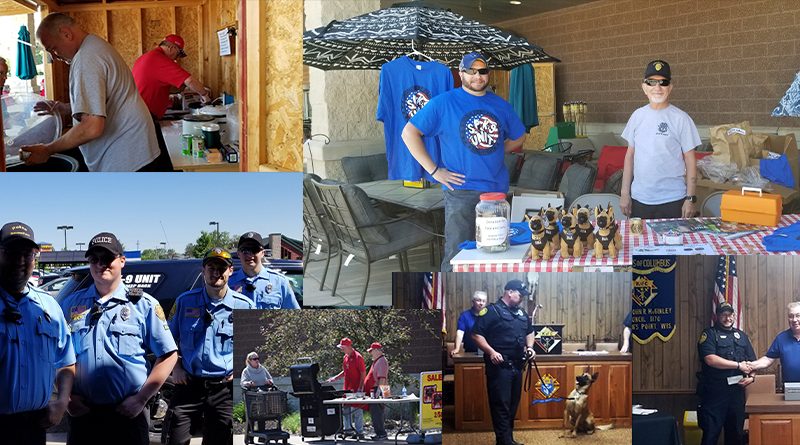Knights’ brat fry helps raise $2,700 for SPPD K9 dogs
By Brandi Makuski
The Knights of Columbus raised $1,225 during its June 22 brat fry at Metro Market—an impressive number by all accounts.
Stevens Point Fourth Degree Knights of Columbus held its second annual brat fry benefiting SPPD at Metro Market, formerly Copps, on Pinecrest Dr. in Stevens Point.
“It was triple what we did last year, between tips and stuff. It was unbelievable,” said Gary Oudenhoven, co-organizer of the event. “We ran out of buns, we ran out of brats, we ran out of natural casing hot dogs—we just about ran ’em out of food.”
The Knights presented the check during a KoC meeting on Wednesday to Lt. Steven Spath from SPPD, who oversees the K9 15-month-old program.
“There’s a lot of stuff that comes up during the year, out of the blue, when you own a dog, so these funds will be so helpful,” Spath said. “It’s awesome, thanks so much. We went through so much food, it was so busy.”
Spath was present during last month’s brat fry, helping Stevens Point Auxiliary Officers sell K9 t-shirts, stuffed K9 dogs, challenge coins, and other related merchandise. Officers brought in $1,505 in sales and donations that day, Spath said.
Officer Autin Lee and his K9 partner, Fala, managed to stop by the July 10 meeting between calls. Lee and Fala were part of the search efforts for the suspect in April’s Pizza Ranch robbery, tracking suspect Semaj Gwyn for a little over a mile.
“I worked out great, we ran the [suspect] right into our perimeter guys, and that’s how we wound up catching him,” Lee said.
Last year, K9 dogs were also used to track down a suspect who stole a car in rural Portage Co. then hid in a 200-acre cornfield, Lee said. “It’s amazing what these dogs can do.”
The Stevens Point Police Department installed its K9 unit in April 2018 to help address the city’s rising drug problem. The dogs, two Belgian Malinois, were purchased from a kennel in Indiana and are trained in scent tracking meth, crack, heroin, cocaine, and marijuana, and in article tracking and apprehension.
The dogs, training, and equipment, cost the department an initial investment of about $50,000, which officers are attempting to offset with donations.
Spath said costs to maintain the program will be paid for with drug forfeitures, along with an anticipated $5,000-$8,000 in annual donations.

